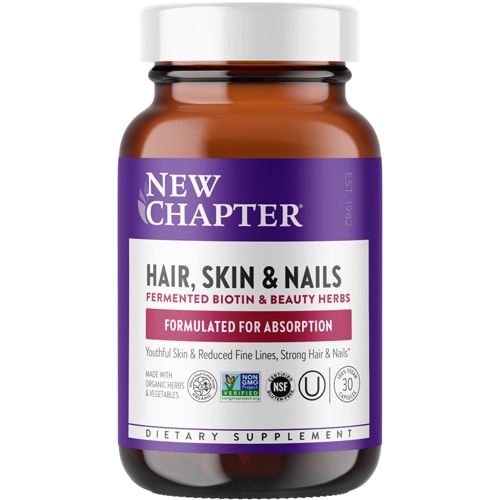What’s at the root of our discomfort with so-called granny hair? Since beauty, particularly youthful beauty, has historically been a women’s currency, going gray is perceived as “cashing out.” It’s a disruptive, even political move, especially amongst the younger set. In 1922, the New York Times publish a story on a judge who determined that a 30-year-old woman proud of her silver locks should be sent to a “psychopathic laboratory” for examination. For women, gray hair carries a stigma of aging, while on men it invokes the cache of dignity. Go figure.
In our current era, women who embrace their gray hair are no longer suspected of experiencing a psychotic break—but they are still encouraged to hide their gray hair, not wear it as a mane of honor. Here is a primer on why gray hair happens, what can you do to prevent it (spoiler alert: not much), and how best to treat your crowning glory.
Why do we gray?
The skin’s follicles contain melanin cells, the tiny sacs under the skin that produce hair. In our youth and prime, each shaft of hair, as it forms, gets an infusion of pigment. There are only two variations of melanin: light and dark. Hair color is determined by varying amounts of melanin. As we age, the production of melanin slows. Scientists are still figuring out the exact reason why, but research suggests that melanocyte stem cells, responsible for pigment production, undergo programmed cell death. A little bit of leftover pigment makes hair gray, while hair without pigment is white.
What’s the typical timeline?
Most of our first “greys” pop up by the time we turn 30, starting at the temples and the hairline and then gradually spreading across the scalp. The pervasive myth about when the gray becomes serious is often cited as the “50-50-50 rule”: by the time you are 50, you have a 50 percent chance that 50 percent of your hair is gray. In fact, a 2012 worldwide survey found that 50 percent was overblown. It’s more accurate to say that only 6-23 percent of the population at 50 can expect to have 50 percent gray hair. The survey also found that men do have significantly more grey hair than women.
Can gray hair be prevented?
Gray hair is pretty much genetically determined, with two important caveats: Stress and lifestyle can hasten pigment loss by a variation of plus or minus five to 10 years.
What are some smart lifestyle choices to slow down the graying process?
Smoking and other kind of stressors take a toll on your hair. Both stress and smoking can cause free-radical damage, which may harm the melanin sacs in each hair follicle. Low vitamin B12 levels can also cause a melanin deficiency. Try eating foods high in B12, such as eggs, shellfish, liver, poultry, and milk products.
What are some natural ways to cover the gray?
If you don’t feel ready to go gray, no judgment. (I started dying my hair a few years ago.) A survey found that gray hair can age a woman six years, while for men it was a mere three. There are several natural hair dye options that eschew ammonia, peroxide, and heavy metals in favor of gentler ingredients. (link to vitacost article on the subject.)
Want to show your gray pride?
Frizz is gray hair’s public enemy No. 1. Gray hair tends to be dry, because the same genetic changes that make hair lose their pigment also mess with the follicles’ oil production capacity. Opt for sulfate-free shampoos, as the sulfates can exacerbate frizz, and make sure you nourish your hair with moisturizing conditioners, treatments and oils. A halo of frizz can age you just as much, if not more, than a shock of gray.





